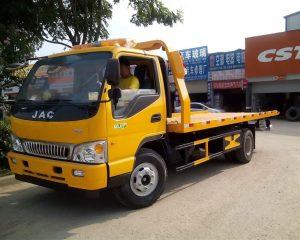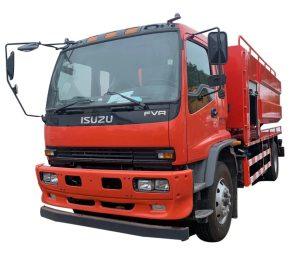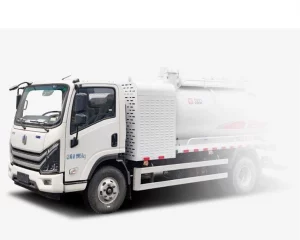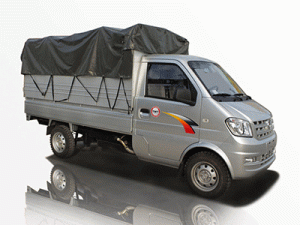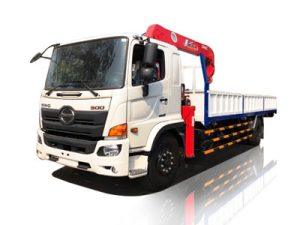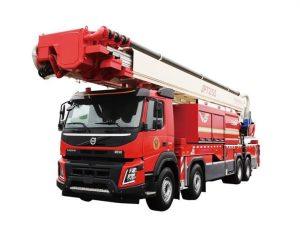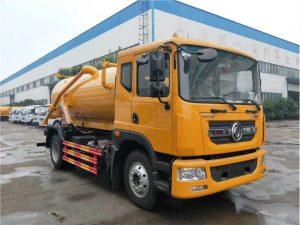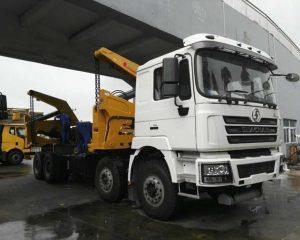Monday to Saturday - 8:00 -17:30
Everything You Need to Know About Trash Dump Trucks
Trash dump trucks play a vital role in modern waste management systems, ensuring that our cities and communities remain clean and safe. This comprehensive article will cover various aspects of trash dump trucks, including their types, features, working mechanisms, environmental impact, and much more.
Understanding Trash Dump Trucks
A trash dump truck is a specialized vehicle designed for transporting waste from collection points to disposal sites. These trucks are essential for effective waste management in urban and rural areas alike. They come in various types and sizes, catering to different waste collection needs.
Types of Trash Dump Trucks
1. Front Loader Trucks
Front loader trucks feature a large front-loading mechanism that can lift and dump waste containers. They are typically used in commercial waste collection due to their efficiency and ability to handle large volumes of trash.
2. Rear Loader Trucks
Rear loader trucks are designed with access at the back to collect waste. Workers manually load garbage into the rear compartment. These trucks are common in residential waste collection services.
3. Side Loader Trucks
Side loader trucks feature an arm on the side that automatically picks up bins and dumps their contents into the truck. This design allows for one-operator systems, reducing labor costs and increasing efficiency.
4. Roll-Off Trucks
Roll-off trucks are equipped with a roll-off container system that allows for easy loading and unloading of large containers. These are commonly used for construction debris and large commercial waste disposal.
Key Features of Trash Dump Trucks
1. Compaction System
Many trash dump trucks come equipped with a compaction system that compresses waste, allowing for more efficient storage. This feature helps maximize the load and reduce the number of trips required to a landfill.
2. GPS Tracking
Modern trash dump trucks often include GPS tracking systems that enhance route optimization and efficiency. This capability helps manage fleets better and reduces operational costs.
3. Safety Features
Safety is a priority for waste management; hence, many trucks are equipped with features such as backup cameras, alarms, and automatic braking systems to ensure the safety of workers and pedestrians alike.
4. Eco-Friendly Options
With increasing environmental concerns, many manufacturers offer eco-friendly trash dump trucks, including electric and hybrid models. These trucks help reduce emissions and fuel consumption compared to traditional diesel models.
How Trash Dump Trucks Work
Loading
Depending on the type of truck, loading procedures differ. For rear loaders, workers manually load waste, while side and front loaders can pick up containers automatically.
Transportation
After loading, the truck transports waste to disposal sites, such as landfills or recycling centers. The route is usually planned to minimize fuel consumption and maximize efficiency.
Disposal
Upon arrival at the disposal site, the truck dumps the contents using its hydraulic system, ensuring efficient unloading and distribution of waste.
Environmental Impact of Trash Dump Trucks
Positive Contributions
Trash dump trucks are essential for maintaining sanitation and public health. They prevent waste from accumulating in communities, which can lead to various health issues.
Challenges
The operation of trash dump trucks can contribute to air pollution and greenhouse gas emissions, particularly if outdated models are used. Implementing eco-friendly technologies can mitigate these effects.
Choosing the Right Trash Dump Truck for Your Needs
1. Assess Your Waste Collection Needs
Consider the volume and type of waste you need to collect. Different trucks are suitable for various waste types, from bulky construction debris to everyday residential waste.
2. Budget Considerations
Budge is a significant factor when selecting a dump truck. Determine your budget constraints and consider both initial costs and long-term operational expenses, including fuel and maintenance.
3. Fuel Efficiency
Choose a truck with fuel-efficient performance to minimize operational costs. Electric and hybrid systems are increasingly becoming popular alternatives to traditional fossil fuel models.
Practical Examples of Trash Dump Truck Usage
1. Urban Waste Management
Cities utilize a fleet of rear loader trucks for efficient waste collection in residential areas, ensuring regular pickup schedules to maintain cleanliness.
2. Construction Sites
Roll-off trucks are commonly used at construction sites to manage debris, allowing contractors to dispose of heavy materials easily.
3. Special Events
During large events (e.g., festivals), trash dump trucks are deployed to manage the increased waste generated, ensuring the area remains clean throughout the event.
Maintenance of Trash Dump Trucks
1. Regular Inspections
Conduct regular inspections to identify and address potential issues, from checking fluid levels to inspecting brakes and tires.
2. Cleaning
Regularly clean the trash compartments to avoid build-up and unpleasant odors. Neglecting this can lead to pest problems and environmental concerns.
3. Scheduling Servicing
Adhere to the manufacturer’s recommended servicing schedule to keep the truck in optimal condition, ensuring safety and efficiency.
Future Trends in Trash Dump Truck Technology
1. Advanced Automation
The future of waste management may see more automated systems, such as remote-controlled or fully autonomous dump trucks, reducing the need for manual labor.
2. Sustainable Materials
Manufacturers are exploring new materials for constructing trash dump trucks that are lighter, stronger, and more environmentally friendly.
3. IoT Integration
As the Internet of Things (IoT) continues to evolve, integration within trash dump trucks can lead to enhanced monitoring and functionality, improving operational efficiency.
Frequently Asked Questions (FAQ)
1. What is the average lifespan of a trash dump truck?
The average lifespan of a trash dump truck is around 10 to 15 years, depending on usage, maintenance, and operating conditions.
2. How much weight can a trash dump truck carry?
Most trash dump trucks can carry between 10,000 to 30,000 pounds, depending on their design and purpose.
3. Are there eco-friendly options for trash dump trucks?
Yes, many manufacturers offer electric and hybrid trash dump trucks that significantly reduce environmental impact compared to traditional diesel models.
4. How often do trash dump trucks need maintenance?
It is recommended to perform maintenance checks every 3,000 to 5,000 miles, along with regular inspections based on operational demand.
5. Can trash dump trucks be used for recycling?
Yes, specialized recycling trucks are designed to collect recyclable materials effectively. Some trash dump trucks can also be adapted for this purpose.
6. What safety features should I look for in a trash dump truck?
Look for features such as backup cameras, alarms, automatic braking systems, and reflective paint for visibility, ensuring the safety of workers and pedestrians.


